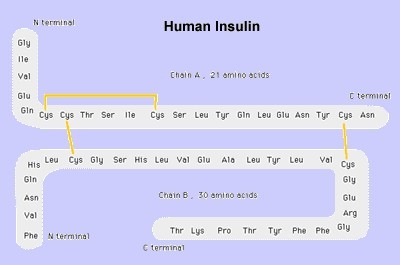
|
|
Evolution or No Evolution
Romans 1: 18 The wrath of God is being revealed from heaven against all the godlessness and wickedness of men who suppress the truth by their wickedness, 19 since what may be known about God is plain to them, because God has made it plain to them. 20 For since the creation of the world God's invisible qualities--his eternal power and divine nature--have been clearly seen, being understood from what has been made, so that men are without excuse. 21 For although they knew God, they neither glorified him as God nor gave thanks to him, but their thinking became futile and their foolish hearts were darkened. 22 Although they claimed to be wise, they became fools Here we are. We are informed from some scientists that evolution is a fact. Well, unless God used pseudo-evolutionary processes to create (which the fossil record and other evidence actually point against), Darwin and creation cannot even partially be reconciled. Frankly, the evidence for evolution is extremely weak. The Bible verses (above and others) leave no room for a random, purposeless, Darwinian mechanism. Let us start with the acknowledgement that Darwin's much admired book was simply racist. We always hear it called "Origin of the Species". In fact, the whole name is "On the Origin of Species by Means of Natural Selection, Or the Preservation of Favoured Races in the Struggle for Life". This is blatant racism, written in a time less politically correct.
The theory of evolution enlists random events over million or billions of years to eventually make life. Hmm. Is this even statistically possible? Over the course of thousands of years, intelligent man has learned that life is complex yet it boils down to simple building blocks. We can manufacture DNA strands but we still cannot make life. If we look at the DNA building blocks of life, these are formed of base pairs in a double helix. These are basically four different bases (adenine (A), cytosine (C), guanine (G) and thymine (T)) linked together to form the DNA strand. The DNA strand codes for RNA(s) that code for proteins to be manufactured for the cell functions the myriad of cells make up tissues that make up a body. Life gives insight into God's mind. He combines very simple processes to form highly complex systems. Also said this way (above): "God's invisible qualities--his eternal power and divine nature--have been clearly seen, being understood from what has been made" The human genome (chromosomes formed by DNA strands) has been mapped out over recent years. There are approximately 3 billion bases in the DNA strands in the human. Although there are a few nonessential bases, for the most part, life depends on the precise arrangement of these bases to make the proteins necessary for life. In general, you must get these in the right order. Realizing that DNA is only one part of the many processes needed for life, let's look at this one component of life for evidence that evolution could be possible. Let's consider the protein insulin, necessary for glucose regulation. Insulin is a small protein, formed from 51 amino acids linked together (153 bases- with 3 bases per amino acid - for example "gly"= glycine, can be coded for by one of 4 possible sequences -GGU, GGC, GGA, GGG). Any other combination would code for a different amino acid and likely will change the protein enough so that one may become diabetic, certainly fatal prior to modern medicine. This is particularly true if more than one sequence is altered. There are "start" and "stop" codons that tell where to begin the coding for RNA. If these are off by even one dropped base or one added base, it can throw off the entire sequence such that the protein would not resemble insulin. Some amino acids have only one group of bases that code for them. In summary, there are 3 DNA bases code (through RNA) for each amino acid making up proteins necessary for life, such as insulin. Insulin is just a small protein, one of many thousands that must be correct for life. Back to evolution. Remember evolution says we do not need God to make this work. For insulin, we need each of 153 DNA bases to be correct. If we incorporate chance alone to coming up with such a specific sequence, the probability of getting it right becomes a statistical calculation. Controlling for the most variability that could occur within these limits, the calculation reveals the following probability that the DNA sequence of insulin could be lined up in the correct sequence strictly by chance (no need for God): 8.49 x 10-66% For those not used to using scientific notation, this is a decimal point before 65 zeros in front of 8.49. This is much, much less than what might happen in the billions of years people speak about. This is based on the idea that of the four possibilities, one will be right each of 153 times. This is a number so low we cannot really understand it's meaning. Let's try to see it here: 0.00000000000000000000000000000000000000000000000000000000000000000849% For example, if one has a coin and flips it 10 times, the possibility of getting heads every time is (½)10= (0.5)10 = 0.0009765 (9.765 x 10-4) or 0.09765%. Would you bet your house on this? Are you lucky enough to flip the coin 10 times and every time get heads? Highly unlikely but much greater chance than that seen for insulin. Even that is much too simple. As another example, take the game show Deal or No Deal. The popular television show is quite entertaining and can also teach us a little statistical reasoning. Deal or No Deal can be played online here: (http://www.nbc.com/Deal_or_No_Deal ). Now, as a contestant, the most favorable outcome would be to pick the case with $1,000,000 to hold till the end of the game and to have the only other case representing $750,000 remaining on the board. In this scenario, you know you would win at least $750,000, the bank would offer a figure between $750,000 and a million and there is a 50% chance you would win $1 million. There are 26 cases randomly assigned dollar amounts up to and including the $1 million case. The probability of picking the $1,000,000 case and then as you play you pick off each of the numbers in order, starting with $0.01, etc., is 1.191 x 10-20 or 1.191 x 10-18 % . Go ahead, flip the coin and see if you can get 10 heads in a row. Go ahead, play Deal or No Deal and flip over every dollar amount in sequence. The statistical calculation is somewhat different since one can only get a single dollar amount once. Yet, it is helpful. The probability of picking the case with $1,000,000 is 1/26= 0.03846 or 3.8%. Quite possible but unlikely. In fact in scientific studies such as medicine, we claim 'proof' of a claim based on a 95% -98% or greater probability that 2 things are related. We are fairly comfortable when there is only a 5% chance that 2 things could be correlated simply to chance. We consider the much greater likelihood of a 95-98% true relation between the 2 things and even given terms like 'proof' that the variable and the system studied are related. This is considered 'proof' because of a very high probability that there is a true correlation between the two things (such as healing after given an antibiotic, etc.), and not just due to chance. In reasonable usage, we know that if there is only a 2-5% chance of correlating observances it is almost proof that it was not by random chance. Yet these are far more likely due to chance than what we see in creation. We ignore this intelligent reasoning in our zeal to believe Darwin and to deny God. The chances that all the sequences of a small protein coming together by random possibilities is incredibly small, no matter how many millions or billions of years we claim it took. By the way, who was it that made the building blocks of the bases, who put them together, if you take God out of the equation? Is there any mathematical reason to "believe" in evolution? No. You would not put all of your money into a jackpot lottery, hoping to win. At the same time, the odds of winning such a game is infinitely greater than just rolling the dice to come up with the sequence of even the small protein insulin. By the way, who rolled the dice? Who came up with the atoms and constructed the molecules that are necessary prerequisites for such a protein? Examples of probability
http://www.ornl.gov/sci/techresources/Human_Genome/publicat/primer/prim1.html God is real. As advanced as we are now, we cannot make even the most rudimentary forms of life. If we deny Him, we become "foolish", just as the scripture says. Don't bet your eternity on such terrible odds. Sequence of 51 amino acids to make up the human insulin protein. Each is coded for by 3 specific DNA bases. http://www.expasy.org/spotlight/back_issues/sptlt009.shtml |
Copyright © 2001-2019 Dio, Inc.

